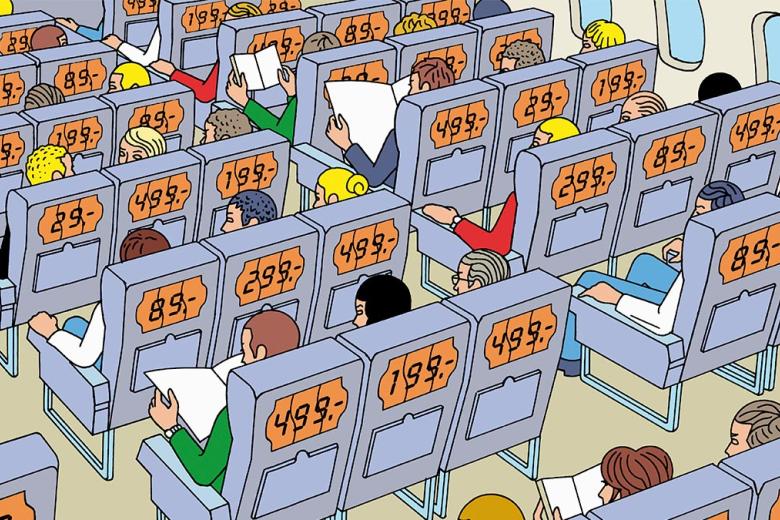A competition law framework for data sharing agreements: striking a balance for EU data spaces
Data spaces are an important initiative to promote data sharing within the EU and across sectors and to make more data available for the benefit of society at large. At the same time, however, data spaces could be challenging under competition law.
Data sharing and re-use of data – when employed in a pro-competitive and pro-innovative manner – could have a sizeable impact on the data economy by spreading the innovation potential of data and by lowering the barriers of entry to the market for start-up enterprises, which are usually equipped with relevant data processing know-how but lack financial resources to collect data on their own. Moreover, data can be used to develop new and better products, as well as to improve efficiency in certain sectors. However, firms may also exploit data sharing to engage in anti-competitive behaviours. For instance, they may share competitively sensitive information, such as marketing and pricing strategies, output levels and new product developments.
Due to the dynamic nature of data and the fact that data sharing agreements are relatively unexplored under competition rules, there is currently uncertainty about the applicability of the competition legal framework to data-sharing agreements. This is even more relevant since the decision whether to share private data depends (almost) entirely on the private autonomy of the parties.
EU Data Spaces in a nutshell
Several policy proposals at European level seek to stimulate business-to-business (B2B) data sharing. Among these initiatives, the introduction of data spaces, as announced by the European Data Strategy of 2020, is particularly relevant in terms of promoting and increasing the sharing and use of data within the EU and also across sector. Data spaces are defined as large pools of data in strategic areas and domains of public interest, such as environment, health, energy, mobility, combined with technical infrastructures and appropriate governance mechanisms necessary to use and exchange data.
As outlined by the Staff Working Document on Common European Data Spaces, released together with the Data Act proposal, the main features of data spaces can be summarised as follows: interconnection and interoperability (i.e. the ability to exchange data); governance (i.e. horizontal governance structures to ensure fair, transparent and non-discriminatory data sharing and use); technical infrastructures (i.e. technical data infrastructures to facilitate coordination and ensure fair data sharing among actors); control (i.e. control by data holders over the data they generate and share); openness (i.e. participation to data spaces remains open to all organisations and individuals); compliance with European rules and cross-sectoral measures (i.e. the GDPR and existing competition law provisions, including the Guidelines on the applicability of Article 101 TFEU on horizontal cooperation agreements (“HGL”) and the Horizontal Block Exemption Regulations (“HBERs”)).
The aim of data spaces is to accelerate the digital transformation in the identified strategic sectors by overcoming legal and technical barriers to the voluntary sharing of data by organisations and addressing the issue of lack of trust through the development of common rules for use of data that are fair, practical, and clear. In addition, such spaces aim to create an environment in which market participants feel empowered to share more data for use within the economy and society, while retaining control over the data they generate. By making available large pools of good quality, interoperable data in identified sectors, the resulting system of cross-sector and sectoral data spaces, combined with the necessary infrastructure for data use and exchange and appropriate governance mechanisms, should help ensure that the movement of data across Member States and across sectors is effective in all respects.
Data Spaces under the Lens of Competition Law
By their very nature – public-driven and sectoral – data spaces raise specific complexities from the perspective of antitrust law. The anti-competitive outcome will depend on, among other things, the market position of the parties involved, the type of data being shared and the form of the interested agreements. Risks of infringement of Article 101(1) TFEU are undeniable.
As mentioned, in addition to the type of information exchanged, other factors that should be taken into consideration when assessing the competitive effects of agreements at the basis of data spaces, including their duration, the frequency of the exchange, the individualised or aggregated nature of the information and data exchanged, the age of the information and its public or non-public nature.
Certainly, collaborations or agreements between competitors, which include a sharing of data, should be assessed ex post, on a case-by-case basis. However, it is important to discuss the main antitrust issues that are likely to arise from data-specific agreements and to examine whether existing competition law may encounter difficulties in its application. Indeed, competition issues arising from data sharing agreements are relatively new and still underexplored in competition law.
Specifically, data spaces involve a flow of information within a sector, which therefore requires the implementation of specific precautions to avoid illicit sharing. These may include the creation of ‘Chinese walls’, so that strategic information could only be exchanged between companies that do not compete with each other. In a nutshell, where information is exchanged between actual or potential competitors, technical measures and control mechanisms should be implemented to prevent participants in data pools from having access to commercially sensitive information.
Another potential issue is the risk of exclusion of a player from the market, in case of exclusion from the sectoral data space. If the information exchanged are competitively strategic and cover a significant part of the relevant market, competitors who are denied access to the pool may result excluded from the market. Therefore, access conditions to data spaces represent an important element to be evaluated in assessing possible foreclosure outcomes. For instance, participants, similarly to what happens in the case of patent pools, should grant access to data pool on fair, reasonable and non-discriminatory terms.
A key document that will undoubtedly provide relevant guidance and answers regarding the role of competition law with respect to data sharing and data pooling practices is the HGL, as it will be adopted in the revised version.
In this context, in the public consultation conducted between November 2019 and February 2020 on the evaluation of the HBERs and HGL, many stakeholders pointed out that current section of HGL dedicated to the assessment of the information exchange does not provide enough guidance to the evaluation of data sharing agreements under competition law rules. This lack of clarity may prevent undertakings to engage in data sharing initiatives and thus to exploit the full potential data. Even more, it can reduce the disruptive potential of data spaces.
Consistently with this view, in its draft revised HGL, released on 1 March 2022, the Commission updates the chapter on information exchange with a view to providing more guidance to companies on the competitive assessment of such an exchange. It will be necessary to verify whether the amendments to HGL, as they will be adopted, will be adequate to cover all potential anticompetitive risks arising from data spaces, taking also into account the specificities of each sector. What is sure is that greater certainty on the principles adopted by competition law authorities when assessing such agreements would facilitate data sharing, access and use, in line with the European data strategy.
| This guest blog was written by Margherita Corrado and Laura Zoboli for the IGIR and METRO Faculty of Law Maastricht #COMIPinDigiMarkts2022 project - More blogs on Law Blogs Maastricht |
This guest blog is part of the project #COMIPinDigiMarkts2022. These blogs have been specially prepared by participating internal and external project members and focus on competition law and IP law, with particular reference to the digital markets.

-
Vertical information exchange enabled by web crawlers, price comparison sites, and spider software under the competition rules following Samsung (2021)
In its fining decision of 14 September 2021 regarding Samsung, the Netherlands Authority for Consumers and Markets (ACM) imposed a fine of over EUR 39 mln on Samsung Electronics Benelux B.V. (Samsung) (the Decision). According to ACM, Samsung coordinated the retail prices of Samsung television sets...

-
The digital market competition with multisided markets: a case of Indian e-commerce
Digital platforms are one of the key developments in facilitating industry 4.0 and are at the center of the multifold benefits the consumers derived through this. An important feature of the digital platforms is the presence of high sunk costs and low marginal costs (UNCTAD, 2019). This occurs since...

-
Why AI-enabled price discrimination is not always undesirable: lessons from law and economics
Digitalization has gradually changed business models and reshaped human lifestyles. The rise of business models based on the collection and processing of consumer data allows undertakings to charge business customers and final consumers different prices for the same goods or services, offered at...
